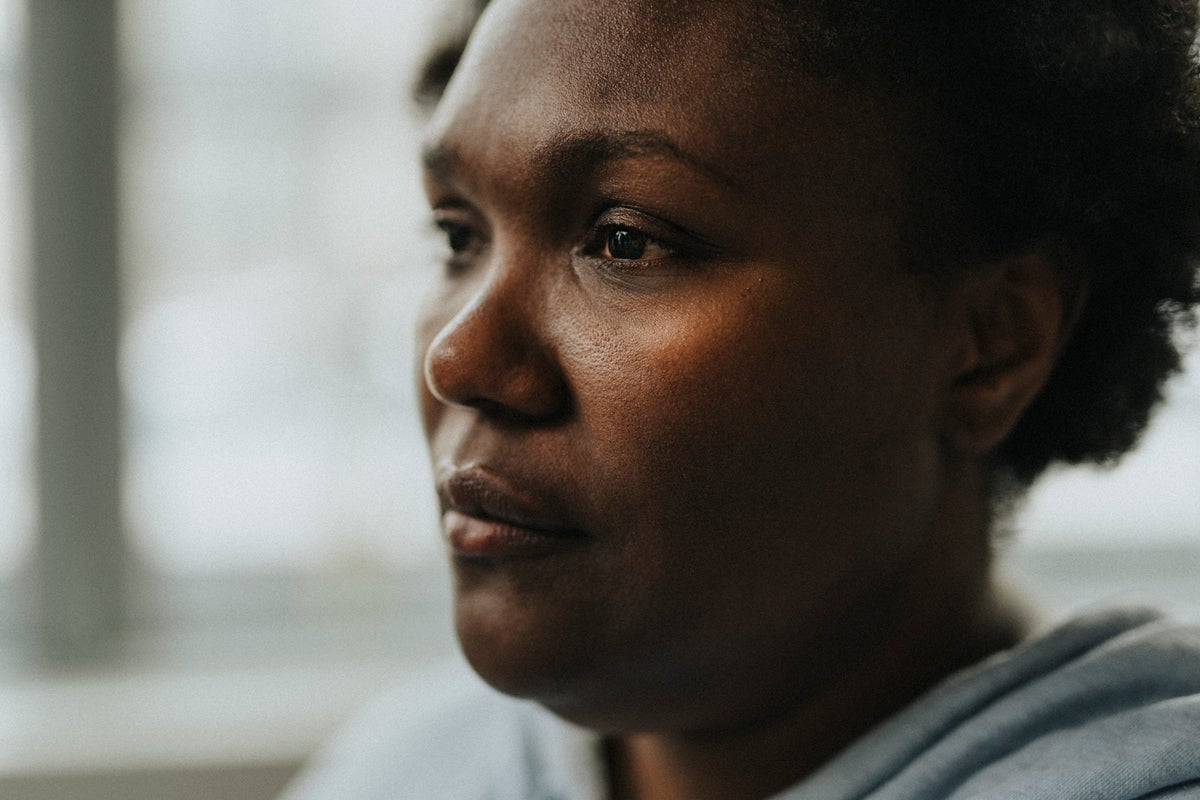
For decades, Black women have been told that the negative health outcomes we face are our own fault. We’re fed rhetoric that we are diabetic because we won’t stop eating foods passed down as heirlooms by our ancestors. We’re genetically disadvantaged because we’re inferior. We don’t get enough exercise because we’re lazy. Black women are told that we aren’t allowed to live as long as other races because we’re not good enough.
Public health researcher Arline Geronimous challenged this notion in her 368-page book Weathering, released in 2023. In the book, Geronimous delves into the impact of stress on the body, particularly focusing on the health outcomes for Black women. In summary, she argues that the chronic stress that emanates from living in a racist society greatly contributes to poor health outcomes for marginalized people.
The public health researcher argues that the more dire health outcomes experienced by Black women are a result of the repeated impact of living under the strain found at the intersections of race and gender, compounded by living under oppressive systems. This framing, specific to Black women, sheds light on their unique challenges and how they manifest in their health. In other words, Geronimous infers that more factors are at play when it comes to our health outcomes.
While the term “weathering” attempts to shift the blame for poor health outcomes from Black women and shed light on oppressive systems, Patricia Allen, a nurse practitioner in Atlanta, has mixed feelings about the word.
“While it may accurately reflect the challenges faced by Black women in society, it can also be seen as labeling them as somehow more fragile or inferior,” she explains. Allen doesn’t like hearing a term used to describe something as “worn down or tired” when speaking with regard to her health status as part of a group or as an individual. However, she acknowledges that studies show that Black women not only have greater disparities in health but more dire outcomes, and this needs to be addressed.
On the other hand, Melissa Ifll, clinical social worker and wellness coach in Atlanta, agrees with the term.
“I see the Black women I work with come in tired physically and emotionally, with the myriad of health symptoms to match,” she says. “Everything from chronic insomnia to lupus and then the symptoms that don’t have a diagnosis for but impact functioning. My clients are high achievers, but their bodies are worn when we begin our work together.”
Whether weathering is an acceptable term or not, the effects of stress on Black women are undeniable. A 2022 article in the National Library of Medicine titled “Assessment of Gender-and Race-Related Stress Among Black Women” found we have higher levels of psychological stress than white women. What’s more, we’re more likely to have conditions associated with chronic stress, like obesity, and experience stress linked to race and gender.
Shifting to real-life examples, we have seen Black women be vocal about their challenges within institutional structures and the stressors they cause in recent times. Academy Award-nominated actress Taraji P. Henson said she considered leaving behind acting due to feeling underpaid and unacknowledged despite her hard work. We watched Claudine Gay resign from her position as president at Harvard University after being under attack for calling for a ceasefire in Gaza. We heard about the death of Antoinette “Bonnie” Candia-Bailey, PhD after she wrote about feeling maligned by the president of Lincoln University. These are all tentative containers of stress for Black women, steeped in discrimination and racism. While we haven’t heard these women explicitly say they’re stressed or that they’re experiencing poor health-related outcomes because of their experiences, their situations could easily create the perfect storm for weathering.
“I hear about this feeling of being in a fish bowl and receiving criticism from my Black women clients in my work every day,” Ifill says. “In fact, sometimes it seems that the closer they are to perceived power, the more challenged they feel.” Black women sit at the intersection of race and gender, and many feel as though no matter how high they get in the roles they have been asked to do, they will forever be second-guessed, ostracized, and overlooked. The term weathering speaks to that level of tiredness. It specifically speaks to the breakdown of our bodies under these stressors and the dire health outcomes we face as a result.
“Black women typically experience earlier onset, delayed treatments, and more severe symptoms compared to other groups,” says Allen. She has treated Black women for a range of issues, from chronic mental health issues to reproductive issues to high blood pressure and diabetes.
While these health issues are often a result of the poor systems that we engage with for our health, research is showing that it is also the biological impact of strain and the result of something called telomere shortening.
Telomeres help the body differentiate healthy cells from damaged ones. Damaged telomeres prevent cellular divide, which is necessary for the presence of healthy cells in the body and a robust immune system. Shortened telomeres result in cells that do not divide and do not die off, and so they release chemicals that create inflammation in the body, which is the source of a lot of illness. Our bodies come into contact with a lot of illnesses regularly, however when we have chronic stress, our immune systems are unable to fight infections, and those illnesses take hold and make us sick, often sicker than others.
So, what do we do about this? We need to ensure we care for ourselves on the emotional wellness and medical fronts as well; preventative care is the solution. Preventative care is twofold; it can include regular visits to a trusted healthcare provider and also evaluating your lifestyle. For the former, Allen says Black women should consider genetic testing and talk to their doctor about it.
“The impact of stress on health is a complex interplay of genetic vulnerability and early life experiences. Some people are generally more sensitive to stress due to genetic variations that make them more susceptible to stressors,” she says.
For this reason, functional medicine and genetic testing can play a significant role in identifying the root causes of illness. These approaches focus on personalized treatment plans and lifestyle modifications based on genetic predispositions and disease risks.
That said, preventative care goes beyond annual wellness visits—it’s also about evaluating the lifestyles we create through the jobs we choose and how we care for ourselves, explains Ifil.
“Often, we do not even consider the lives that we are living and the impact they have on us. We strive for roles and lifestyles because we believe that we should have them and they’re cultural norms, but we do not consider the impact these roles have on us,” she explains. “We need to always take inventory of what we really want, the impact of our choices, and walk away from things when we realize they do not serve us.”
Constant mindfulness is essential because stress impacts our cognitive abilities, and compounded stress makes creative problem-solving difficult. So, you have to be aware of what you are agreeing to and have a plan for caring for yourself through it. For instance, if you’re choosing to stay in corporate America, have a self-care plan in place to help you manage the impact of the stress that your work comes with. Meditation, journaling, finding a safe place to vent concerns, setting boundaries, as well as seeking moments of joy and true connection are mitigators of stress.
Black women face a myriad of social and political circumstances that are stressful for us. However, we must be aware that the impact of stress is not just psychological but also biological. Understanding our needs, our family history, as well as seeking competent care to address issues, are some ways that we can care for ourselves. In addition, it is also vital that we take the time to understand that we may be making choices that lead us into situations that are in close proximity to heightened risk for stress. Ultimately, we need to make choices that support our overall well-being, even if it means leaving those situations behind.





